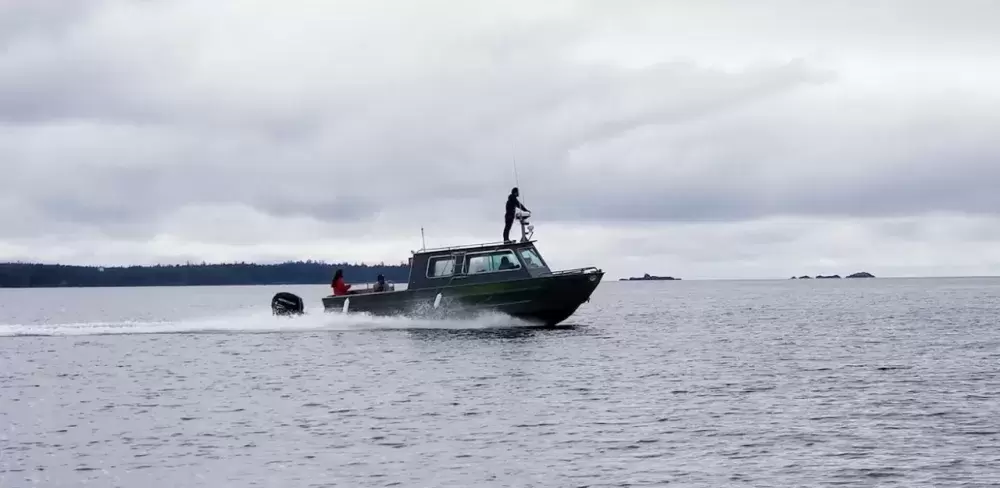The VI Connector and Tofino Bus have suspended all runs until further notice.
“We are taking every measure to ensure the safety of our customers and employees and to be part of the solution to reduce the risk of transmission of COVID-19,” said Travis Wilson, General Manager, in a written statement.
In fact, many of the coastal villages have gone on record that they are limiting access to the communities in an effort to stop the spread of COVID-19. Leaders from Ahousaht, Tofino and Hot Springs Cove have all stated that they are closed to visitors with the exception of essential services providers.
Water taxis that are serving coastal communities are urged to sanitize their boats following every trip. Ahousaht Emergency Response Team is asking water taxi operators to check in with their Emergency Operations Centre so that they can track people coming and going from Ahousaht.
Joshua Charleson, Hesquiaht’s elected chief, says he has directed that only the three water taxis named in a letter will be permitted to ferry passengers and supplies into Hot Springs Cove. On March 16 his council agreed to limit access to the community and contractors were sent home as a result.
In addition, Hesquiaht has closed its school, clinic and administration office. Only two band staff members continue to work as usual while the rest are working from home.
These measures will be in place until April 6, 2020, but could continue depending on the COVID-19 situation.
“We are taking the recommendations of the B.C. health officer and [The First Nations Health Authority] very seriously,” Charleson said.
He noted that information is coming in from health authorities on a continual basis. His council is monitoring the updates and staff will be proactive in following recommendations to keep membership safe, said Charleson.
Ahousaht Tyee Ha’wilth Maquinna (Lewis George) said in a recorded message that beaches in his hahulthi will be monitored and any visitors found there will be asked to leave. Only those that provide essential services, like the NTC nurses, will be permitted to enter and leave the village.
“I urge people to stay home, we need to pull together on this in order to flatten the curve (of the spread of COVID-19),” said the hereditary chief.
According to Curtis Dick, the First Nation’s Emergency Operations coordinator, Ahousaht’s recreation workers have been notified to limit groups to 15 as recommended by their local health nurse; they are advised to be outdoors as much as they can.
In additions, the Ahousaht Emergency Operations Centre is directing residents to supply the office with household head counts as well as information about residents that are ill or have compromised immune systems.
“The more we know the more we can better work together and or support those who need it,” Dick said in a message to membership. He urged the people to remain calm.
As for the lack of bus service, Dick pointed out that transportation for Ahousaht is always a challenge.
“We are doing our best to identify and accommodate those needs for rides,” he said.
Hesquiaht has implemented a COVID-19 relief fund.
“Hesquiaht First Nation chief and council have decided to alleviate some of our nation’s financial stress and we have set up a COVID-19 relief fund,” he wrote in a letter dated March 18, 2020.
The relief fund allows for every eligible Hesquiaht member, children included, a one-time deposit of $100 each.
To receive funds, members must contact their band office to provide membership information. Phone the band office at 250-670-1100 or email heather@hesquiaht.ca. Access to the fund is open to members for the duration of March 2020.
Ahousaht leadership has pledged to put out twice-daily briefings, broadcasting by social media at 10 a.m. and 4 p.m. Information will also be posted on their Ahousaht Emergency Response Facebook page regularly.







